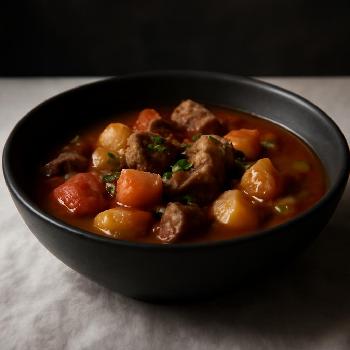Soups & Stews > Freezing & Storing Soups & Stews > Storing Leftover Soups & Stews > Shelf Life of Refrigerated Soups & Stews
How Long Do Refrigerated Soups & Stews Last?
Learn about the safe shelf life of refrigerated soups and stews, factors affecting spoilage, and tips to maximize freshness.

General Guidelines
Generally, properly refrigerated soups and stews can last for 3 to 4 days. This applies to both homemade and store-bought varieties. Always err on the side of caution and discard if you are unsure.
Factors Affecting Shelf Life
Several factors can influence how long your soup or stew remains safe to eat in the refrigerator:
Signs of Spoilage
Be vigilant and look for these signs indicating that your soup or stew has spoiled and should be discarded:
Do not taste the soup or stew if you suspect it might be spoiled. When in doubt, throw it out!
Proper Storage Techniques
Follow these best practices to maximize the shelf life of your refrigerated soups and stews:
Reheating Leftovers Safely
When reheating leftover soup or stew, ensure that it reaches an internal temperature of 165°F (74°C). Bring the soup or stew to a boil on the stovetop or use a microwave. Stir frequently to ensure even heating. Discard any leftover portion that has been reheated more than once.
Nutrition Facts Estimated per 100g of product
Nutrition information will vary widely depending on the specific soup or stew. Refer to the nutritional label of the specific recipe or ingredients used.
Other Considerations for Nutrition
If you have dietary restrictions or health concerns, consult a registered dietitian or healthcare provider for personalized advice regarding soup and stew consumption.
FAQ
-
Can I extend the shelf life of refrigerated soup by reheating it daily?
No, reheating the soup daily will not extend its overall shelf life and may actually encourage bacterial growth. Each time you reheat and cool the soup, you provide an opportunity for bacteria to multiply. It's best to only reheat the portion you plan to consume. -
Is it safe to eat refrigerated soup that has been stored for 5 days if it looks and smells fine?
While it might appear and smell fine, it's generally not recommended to consume soup or stew that has been refrigerated for more than 4 days. Bacteria can grow without causing obvious signs of spoilage, so it's best to err on the side of caution.
